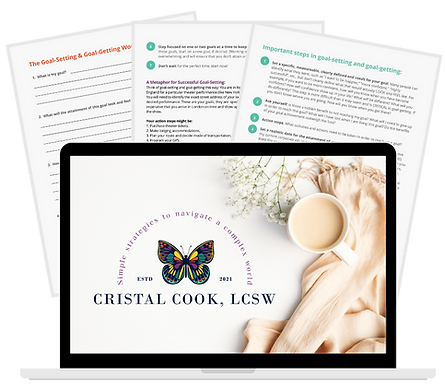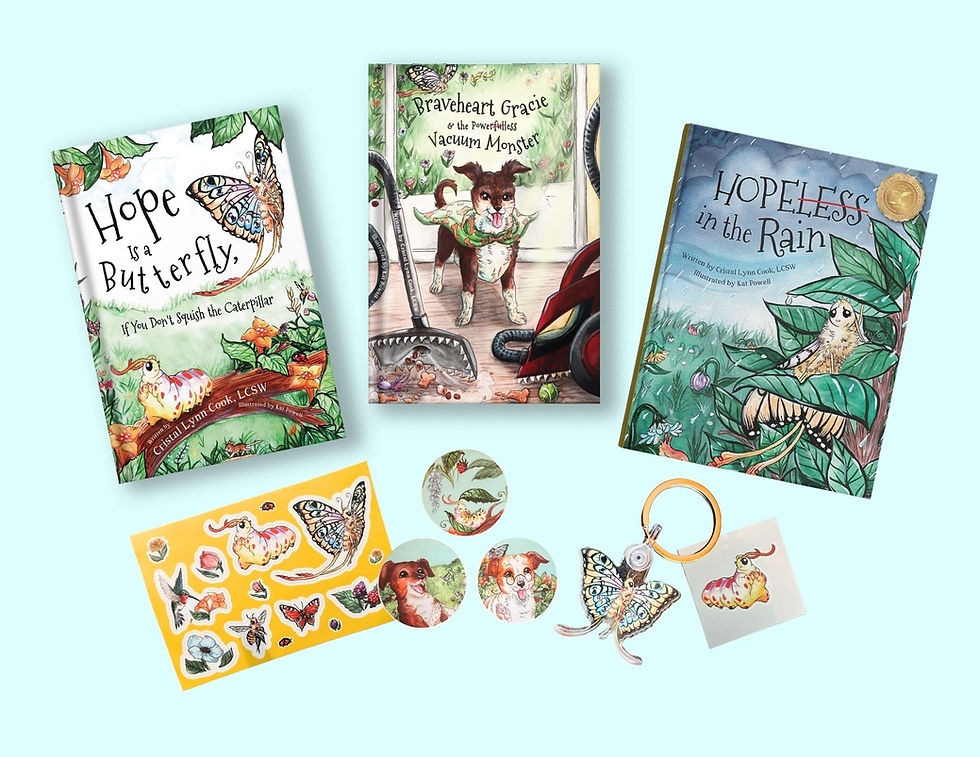
How can we join forces?
Below are my specialties and all the ways we can raise the vibration of the world, starting with ourselves, and then naturally by the way we interact with others!

Hi, I'm Cristal!
I'm so glad you're here
My vision is to do my part to raise the vibration of the planet, one person at a time, to ultimately launch a butterfly effect: “A butterfly can flutter its wings over a flower in China and cause a hurricane in the Caribbean”. * The flutter of a butterfly’s wings is not forceful or commanding, yet that gentle movement can be inspiring, with the power of exponential effects. My own “gentle flutter” includes speaking engagements, workshops, mental health therapy services, and my Crystalline Vibes™ children’s book series, using playful storytelling through the eyes of beloved animal characters to teach children how to be happier and healthier.



Join my newsletter to receive my Free Goal-Setting & Goal-Getting Guide!
Would you like me to do a workshop at your school or speak at your event?
I help educators and students embrace storytelling to master social emotional skills in the classroom… and in life.
More than ever, we need greater compassion, acceptance, empathy, respectful communication, and improved life skills. The solution is teaching children valuable life lessons in an entertaining process through playful and powerful storytelling.


Testimonials

"Personal transformation can and does have global effects. As we go, so goes the world, for the world is us. The revolution that will save the world is ultimately a personal one"
- Marianne Williamson







































